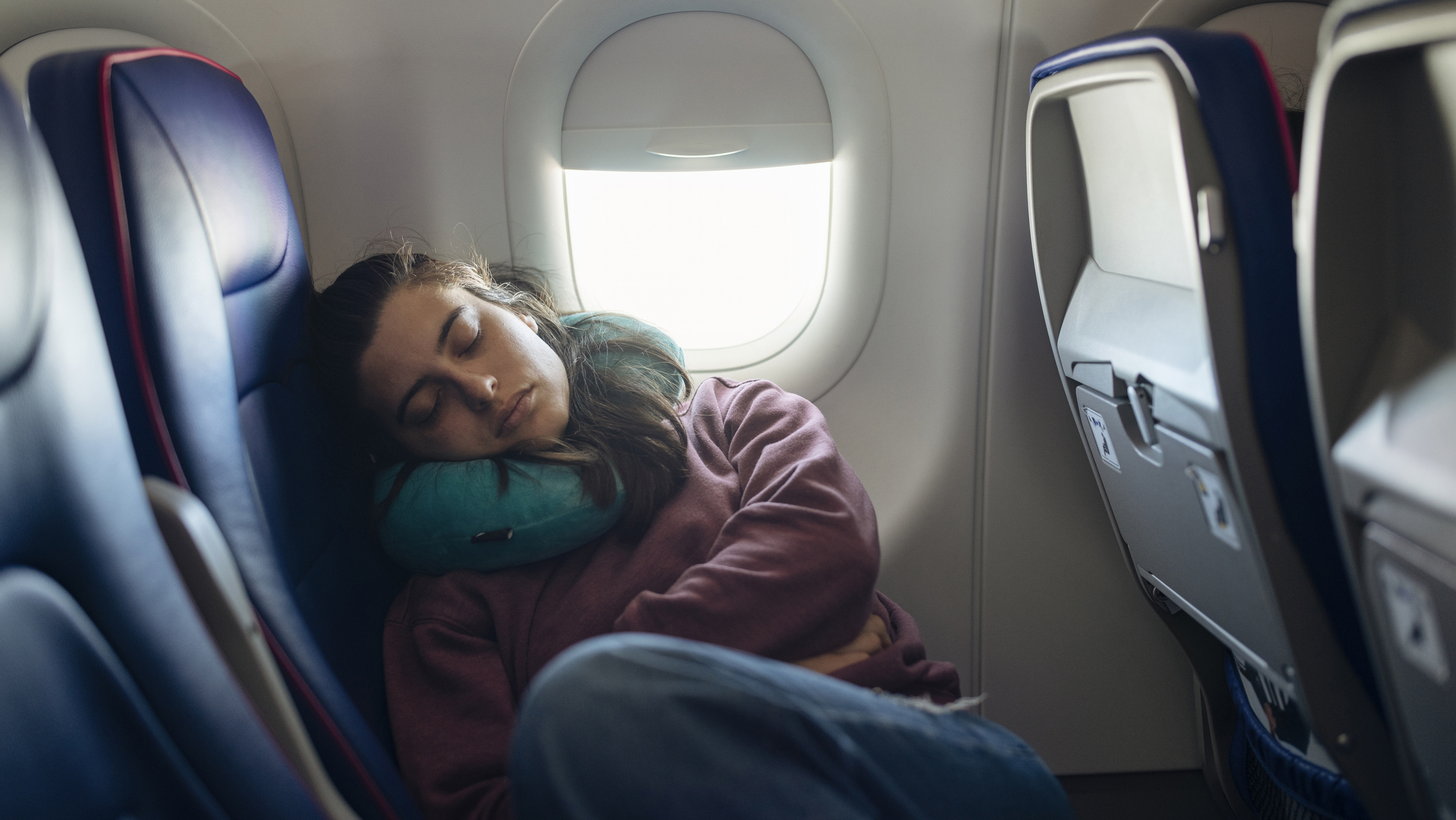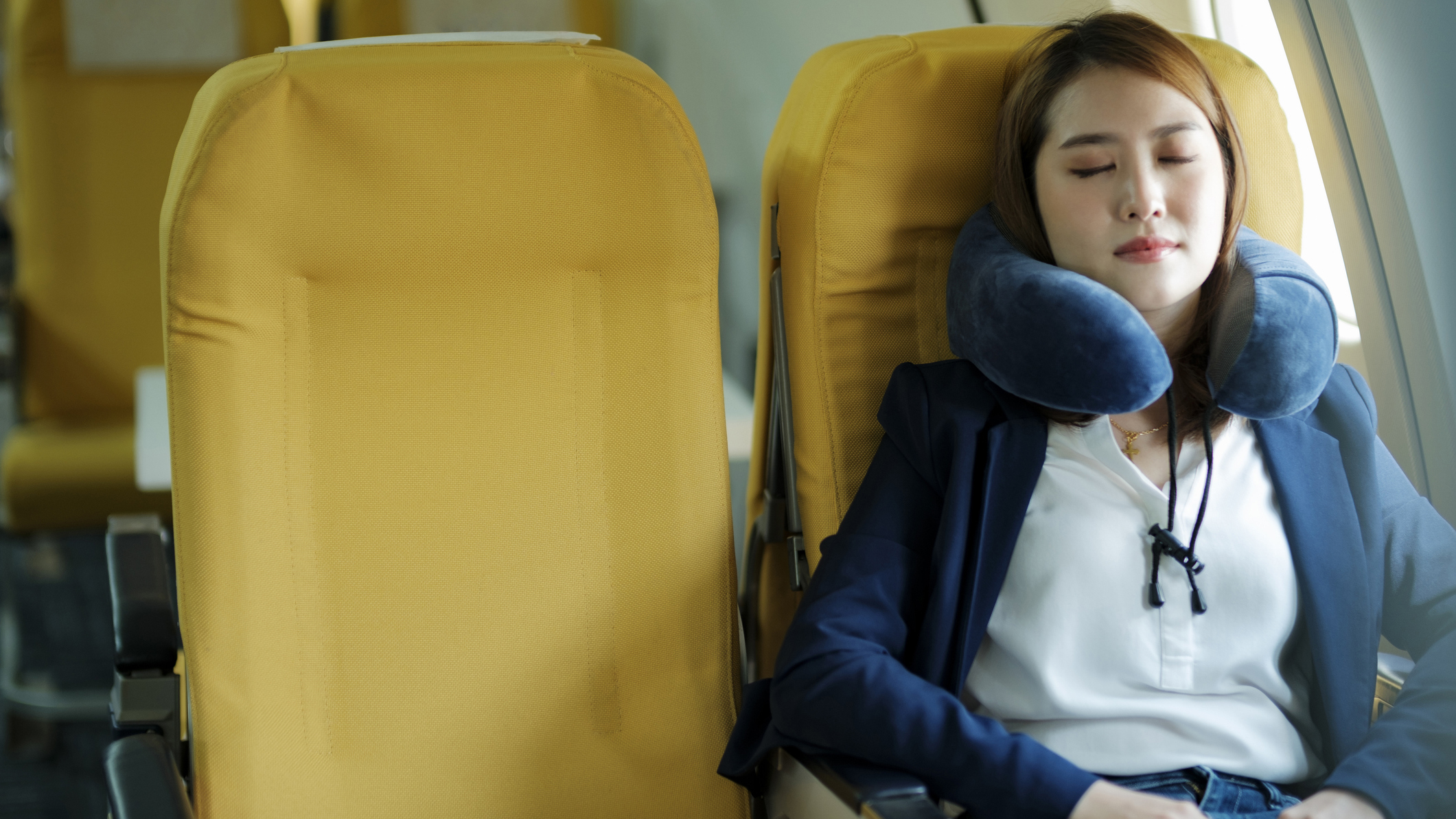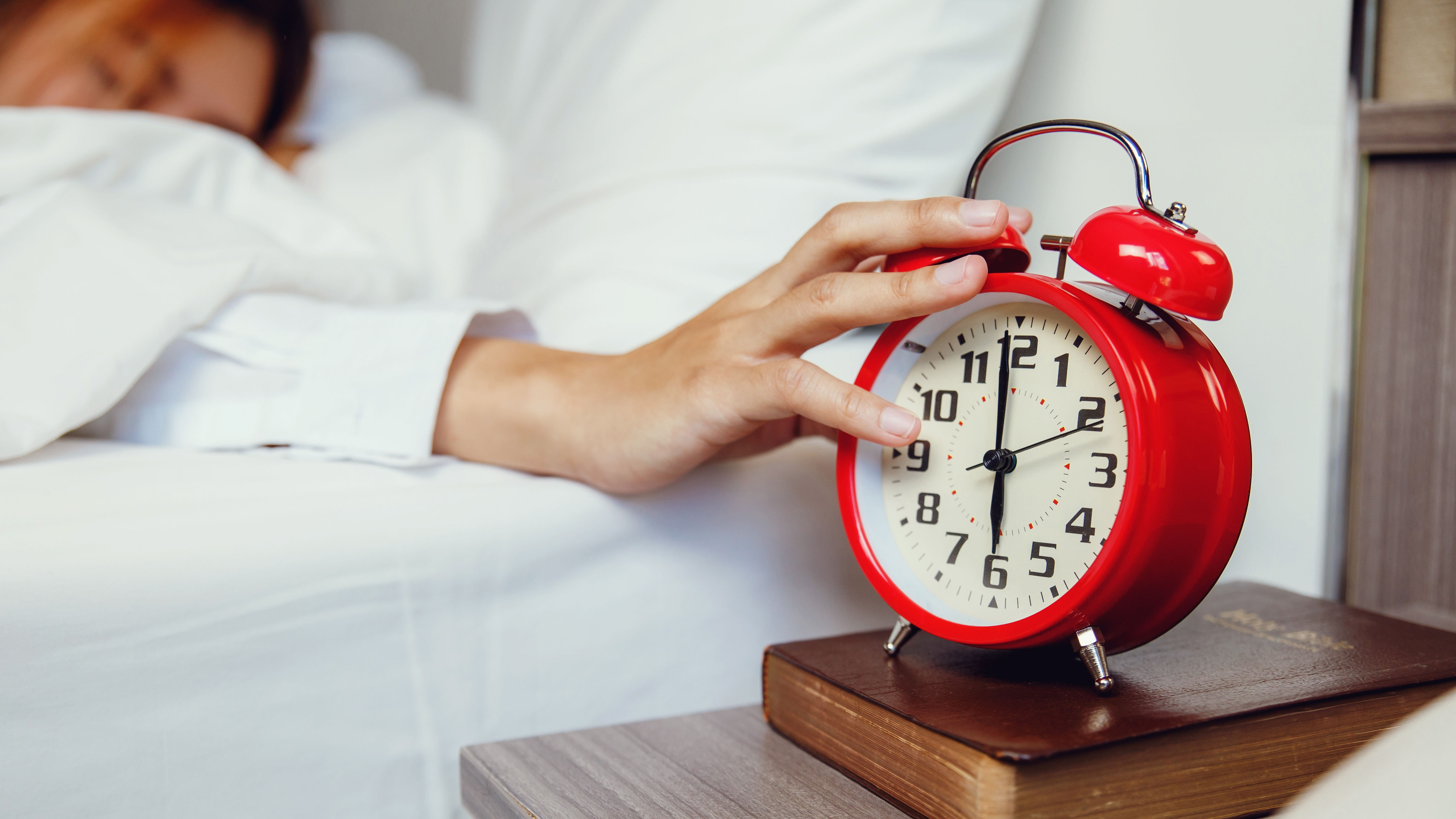
After a recent trip away, my body decided the best souvenir was bringing home the wrong time zone. Jet lag left me feeling run down and worn out for over a week, with the distinct feeling that I needed another vacation.
I flew from London to Phoenix and back again over the course of one week, passing through multiple time zones and a seven hour time difference. When Londoners are just waking up, people in Phoenix would be getting into bed. No wonder my sleep cycle was so confused.
And to make things worse, despite being a sleep writer, I took the worst steps to overcome jet lag. After a week of struggling through i think I'm finally back to normal, but I don't want you to fall for my mistakes. Read on to discover how jet lag impacted me and what I wish I'd done about.
What is jet lag and how does it affect sleep?
Jet lag occurs when your internal body clock is out of sync with your current time zone. It often happens when traveling, as you're forced to quickly adapt to a new time zone and then revert to the old one.
We spoke to Dr Hana Patel, resident sleep expert at Time4Sleep, to learn 'what is jet lag'. She explained: "we operate according to circadian rhythms, also known as 'body clocks', which are physical, mental, and behavioral changes that follow a 24-hour cycle. That means our bodies are aware of the time of day, and send signals to encourage drowsiness at night time, and alertness in the day."

But traveling causes these rhythms to get all messed up. "When we travel, and particularly if we cross several time zones, our bodies stay in the time zone that we've traveled from," says Dr Patel. "It can take up to a few days for our body clock to recalibrate itself to the new time zone." And this is when we get jet lag.
What are the symptoms of jet lag?
"Fatigue, digestive issues, and difficulty falling or staying asleep," are common symptoms of jet lag, as Denise Lordache, sleep therapist at JoySpace Therapy, explained when we spoke to her about 'how to get over jet lag'.
Jet lag left me feeling run down and with a bad case of brain fog. Initially, I could have fallen asleep at the drop of the hat (and did drift off a few times on the train home from the airport). This was mostly gone by the next day, but fatigue persisted long after.
Despite this, I struggled to fall asleep when I actually went to bed. I tossed and turned, I couldn't stop my thoughts from racing, and I frequently woke up in the middle of the night. When my alarm went off, I was so tired I had to hit snooze, but the tiredness would persist throughout the day — right until I got into bed again.
How long does jet lag last?
Our sleep cycles appreciate routine, and there are few things more disruptive to a routine than crossing through time zones. It takes a while for our bodies to readjust after a disruption, and it's during this adjustment period we experience jet lag.
How long jet lag lasts is variable, and it partly depends on just how many time zones you travel through (the bigger the time difference, the longer jet lag is likely to last). Overall, you can expect jet lag to last between 24 and 72 hours.
But from my experience, jet lag can end up lasting even longer if you don't take steps to get your sleep cycle back on track. It took me around a week to finally feel back to my normal habits and fall asleep within a few minutes of getting into bed.
What I should have done to avoid jet lag
After returning from my trip I spent the next few days sleeping at odd hours, tossing and turning in the night, and wondering why I felt so bad. I don't plan on giving up all forms of travel, so here are the steps I'll follow next timeI fly to avoid jet lag.
1. Avoid heavy food and alcohol
It's eleven boring hours on a plane between Phoenix and London, and I spent most of that time sampling the food and drink service. But as much as I enjoyed my caramel tart and glass of wine, heavy meals, sugary foods, and alcohol are likely one of the reasons I felt so tired the next day.

The 10-3-2-1-0 sleep method recommends no alcohol or food three hours before bed, but this can be hard on an airplane when you aren't in control of the dinner service. Going hungry isn't the solution, but steer clear of sugar, caffeine, and alcohol, and when you feel full, stop eating.
2. Stick to a consistent sleep and wake time
Having spent the previous week at a time zone seven hours behind my own, my brain and body were convinced my standard bed time was still the middle of the afternoon. Similarly, when my alarm said 'wake up', my body said 'it's still the middle of the night'. Unfortunately, I was inclined to listen.
However, the best way to get over jet lag is to readapt to your own time zone, and sticking to your usual sleep and wake up time is a quick way to reset your body clock. That morning lie in might seem like a good idea, but it'll probably end up confusing your circadian rhythm even further.
3. Get active during the day
My jet lag had me convinced that the best thing to do was laze around, but I'm a sleep writer so I know that's not good advice. Regular exercise can help you achieve more deep sleep, while getting outside exposes you to sunlight and helps regulate your circadian rhythm.

Staying active can also help you resist the allure of a nap. Daytime naps can stop you from sleeping through the night, particularly if they last for longer than 20 minutes. Even though a nap might seem more appealing than a walk, the latter is better for busting jet lag.
4. Use calming techniques when I can't sleep
Changing time zones left me struggling to fall asleep, even though I spent all day feeling tired. I also had a tendency to wake up in the night, and once awake, it took a long time to drift back off. Feeling so very tired, I found these frequent wake ups to be frustrating, and spent most of the time tossing and turning until I finally dropped to sleep.
Instead, I should have kept calm and tried some of my favorite breathing exercises for sleep. Even if moon breathing couldn't get me snoozing, it would have helped me stay relaxed, so I wouldn't wake up feeling annoyed the next morning.
5. Prepare in advance
One of the best ways to avoid jet lag (or limits its effect), is to prepare for the time change before you start your trip. Ahead of traveling, spend a few nights sleeping in the time zone you'll be moving into — or as close to it as possible.

Once you're on the road, change your watch (or smartphone) to reflect the new time zone. And control your lighting as well. If it's daytime in your destination, keep the lights on. If it's nighttime, turn them off. I didn't do any of that, and it's probably part of the reason why jet lag hit me so hard
More top tips for sleeping better at night
Most of us only have to worry abut jet lag for a few days a year, but the end result is similar to the effects of sleep deprivation. And even if you aren't traveling, you can still struggle with social jet lag — when your weekend and weekday sleep patterns are almost in different time zones. Here are some ways to deal with it:
- Invest in a good sleep set up: Choosing the best mattress for your body and sleep style can help you drift off better every single night. And you'll be extra grateful for that comfortable and familiar sleep setup after a long vacation.
- Keep to a set sleep schedule: Social jet lag occurs when you don't keep the same sleep patterns all week, and these drifting hours can result in a feeling akin to jet lag. Head to bed the same time every night and set your alarm for the same time every morning.
- Create a relaxing wind down routine: When you're traveling, routine can be hard to come by but at home a good nighttime routine is vital for consistently good sleep.







